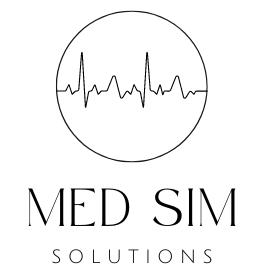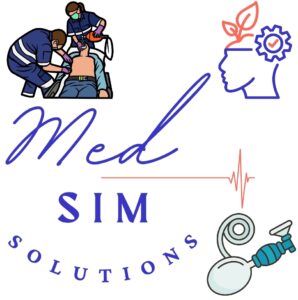Our Common Paediatric Emergencies Workshop is designed to provide healthcare professionals with experience in managing a variety of critical healthcare emergencies. This clinical healthcare simulation-based workshop covers common emergency scenarios, offering participants the opportunity to practice skills in a simulated environment.
Duration: 4 Hours
Workshop Structure:
Introduction and Overview (15 minutes)
- Connection and introduction of facilitators and participants.
- Workshop schedule.
- Brief discussion on paediatric emergency preparation
Scenario 1: Airway Obstruction (40 minutes)
- Scenario: A child presenting with a foreign body airway obstruction.
- Skills Covered: Airway assessment, Heimlich maneuver, back blows, chest thrusts, and airway management techniques (e.g., oropharyngeal and nasopharyngeal airway insertion).
- Debrief to reflect on the simulation experience.
Scenario 2: Paediatric Respiratory Distress/Failure (40 minutes)
- Scenario: A child with severe asthma exacerbation or bronchiolitis leading to respiratory distress and potential failure.
- Skills Covered: Assessment of respiratory distress, administration of nebulized medications, oxygen therapy, non-invasive ventilation, and airway management.
- Debrief to reflect on the simulation experience
Scenario 3: Paediatric Cardiac Arrest (40 minutes)
- Scenario: A child experiencing sudden cardiac arrest.
- Skills Covered: CPR, use of defibrillator, CPR protocols, and team dynamics during resuscitation.
- Debrief to reflect on the simulation experience
Scenario 4: Severe Allergic Reaction/Anaphylaxis (40 minutes)
- Scenario: A child with a severe allergic reaction progressing to anaphylaxis.
- Skills Covered: Recognition of anaphylaxis, administration of intramuscular adrenaline, airway/breathing management and intravenous fluid resuscitation.
- Debrief to reflect on the simulation experience
Scenario 5: Status Epilepticus (40 minutes)
- Scenario: A child presenting with an ongoing seizure or status epilepticus.
- Skills Covered: Initial assessment and management of seizures, administration of anticonvulsants (e.g., benzodiazepines), and supportive care.
- Debrief to reflect on the simulation experience
Conclusion and Q&A (15 minutes)
- Summary of skills learned during the workshop.
- Time for questions and additional clarifications.
Key Benefits:
- Immersive Experience: Engage in immersive healthcare simulation based education with manikins and other learning tools to practice critical emergency management skills.
- Realistic Simulations: Participate in clinical scenarios to apply and reinforce the skills learned.
- Expert Guidance: Learn from experienced paediatric emergency medicine professionals who provide personalized feedback and support.
- Comprehensive Learning: Develop skills in managing a range of paediatric emergencies, enhancing your ability to provide care in critical situations.
Target Audience
This workshop is ideal for healthcare professionals involved in the care of paediatric patients.


